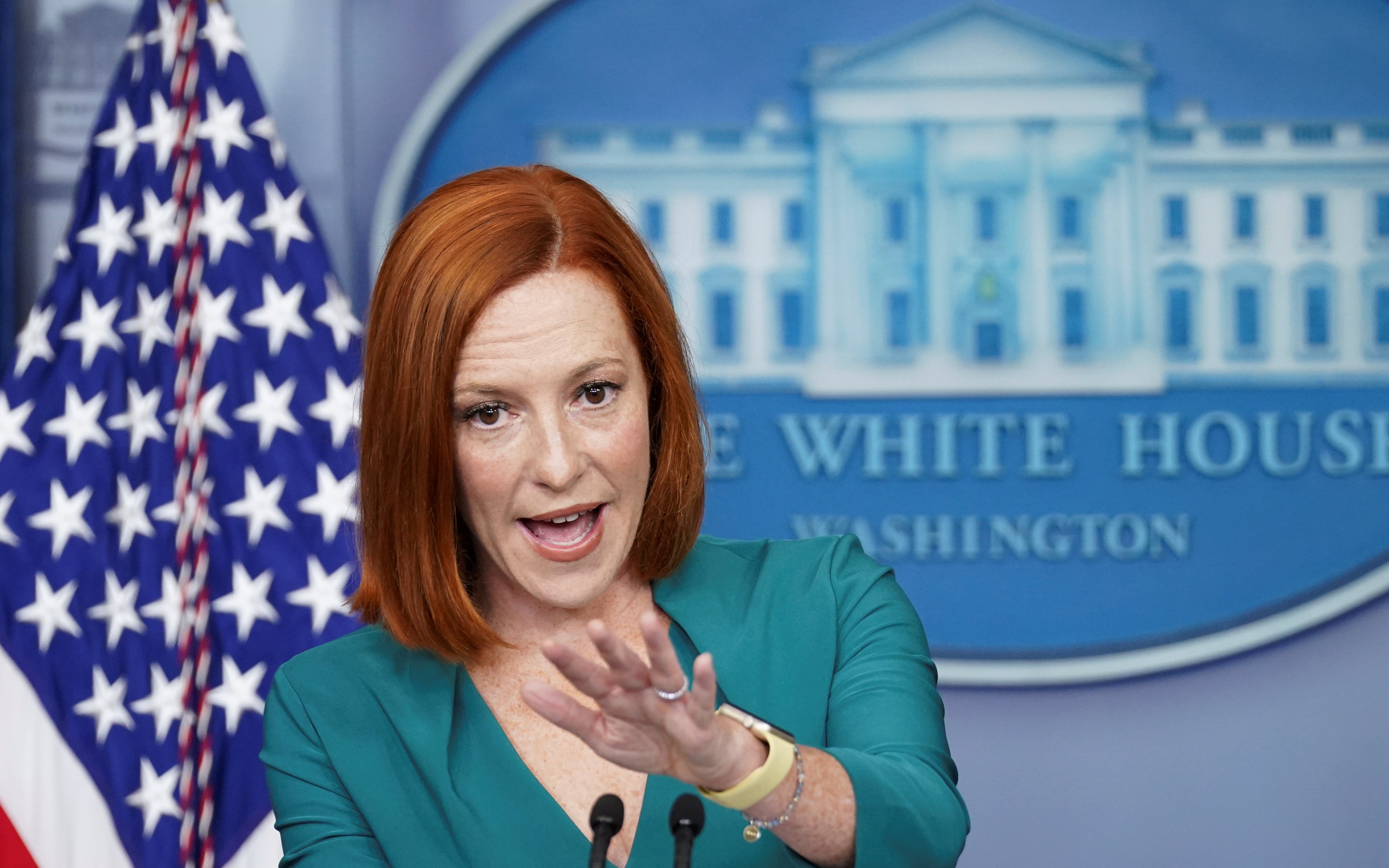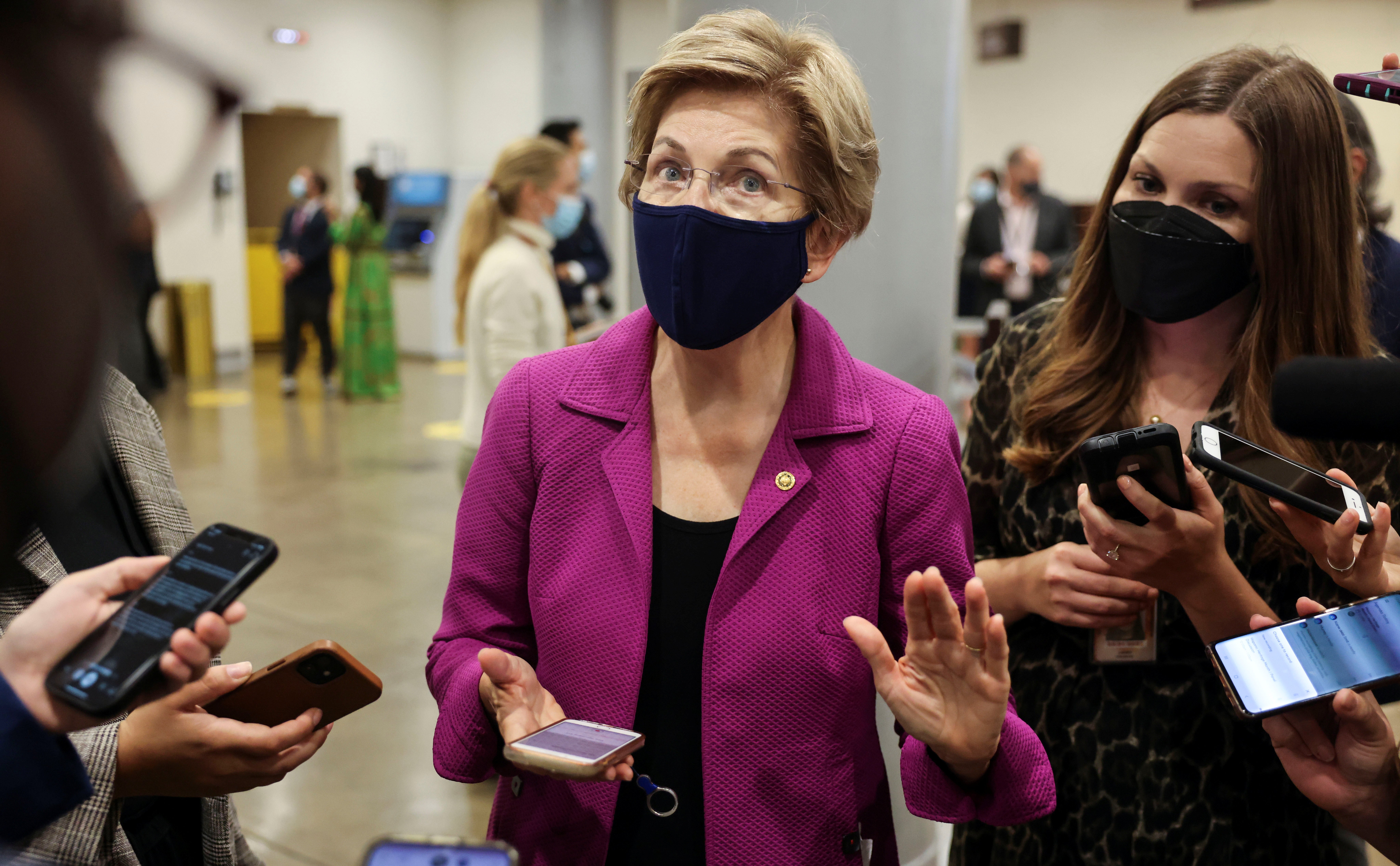‘McConnell folded’: Democrats poised to raise debt ceiling with new deal as White House keeps pressure on GOP
White House pans short-term deal while Democrats in Congress celebrate triumph on short-term deal
Your support helps us to tell the story
From reproductive rights to climate change to Big Tech, The Independent is on the ground when the story is developing. Whether it's investigating the financials of Elon Musk's pro-Trump PAC or producing our latest documentary, 'The A Word', which shines a light on the American women fighting for reproductive rights, we know how important it is to parse out the facts from the messaging.
At such a critical moment in US history, we need reporters on the ground. Your donation allows us to keep sending journalists to speak to both sides of the story.
The Independent is trusted by Americans across the entire political spectrum. And unlike many other quality news outlets, we choose not to lock Americans out of our reporting and analysis with paywalls. We believe quality journalism should be available to everyone, paid for by those who can afford it.
Your support makes all the difference.The US edged a little further away from catastrophe as Democrats and Republicans on Capitol Hill appeared to be on the verge of reaching at least a short-term deal to extend the nation’s borrowing authority.
The White House continued to insist that Republicans cease their obstruction and allow Democrats to pass existing legislation that would extend the debt ceiling, while congressional leadership appeared poised as of late Wednesday afternoon to accept a deal from Republicans to push the battle back to December.
“Why kick the can down the road?” asked White House press secretary Jen Psaki repeatedly at Wednesday afternoon’s news briefing.

“Democrats are willing to be the adults in the room” and pass an extension to the debt ceiling without Republican support should the GOP end its threat to filibuster the legislation, she continued, adding that the Senate could “end this today” if its members wanted. Republicans, 10 of whom would be needed to proceed to lift the debt ceiling, stand in the way, threatening a debt default which would have catastrophic impacts on the US economy and credit rating.
The rhetoric from the White House podium, while on its face appearing to conflict with the acceptance of a short-term deal by Democratic members of the Senate, is part of a strategy the White House has employed in recent days to focus blame for both the threats of a government shutdown and US loan default on the Republican Party, whose members, Ms Psaki has repeatedly noted, supported debt ceiling extensions under former President Donald Trump’s term in the White House.
President Joe Biden has also joined in the pressure campaign and suggested that it was “possible” the Democrats would carve out an exception in the filibuster allowing the debt ceiling to increase with just 51 votes; the suggestion that Democrats may actually follow through on threats to change the filibuster was credited by some with helping move Senate Minority Leader Mitch McConnell to support a short-term deal.

It remains unclear if Democrats will actually accept the deal offered by Mr McConnell, or whether Mr McConnell’s deal would be contingent on Democrats agreeing to pass a debt ceiling hike via budget reconciliation measures in December; Senate Majority Leader Chuck Schumer and others have publicly dismissed that idea.
The mood on Capitol Hill among Democrats appeared jovial, however, with Sen Tammy Duckworth exclaiming that Mr McConnell had “folded” while Sen Elizabeth Warren trumpeted that “McConnell caved”.
On Monday, Mr Schumer told reporters at a news conference: "We do not have the luxury of using a drawn out, convoluted and risky process.”
A US default on its debt obligations would likely lead to a downgrading of the US credit rating by global credit agencies; such a move would have serious consequences for future borrowing by the federal government.
Part of Mr McConnell’s offer on Wednesday included the prospect of working with Senate leadership to create an expedited budget reconciliation process for the debt ceiling to be raised in December; as of yet, Democrats have not shown indication of wavering on their refusal to use that process to raise the debt ceiling.
At a press conference Wednesday afternoon, Senate Budget Committee chairman Bernie Sanders called Mr McConnell’s offer a “step forward” but indicated hesitancy to raising the debt ceiling through budget reconciliation in December.
“I hope we can negotiate a process that creates a long-term solution,” said the senator, who added that he was “glad that we are where we are”.

Join our commenting forum
Join thought-provoking conversations, follow other Independent readers and see their replies
Comments